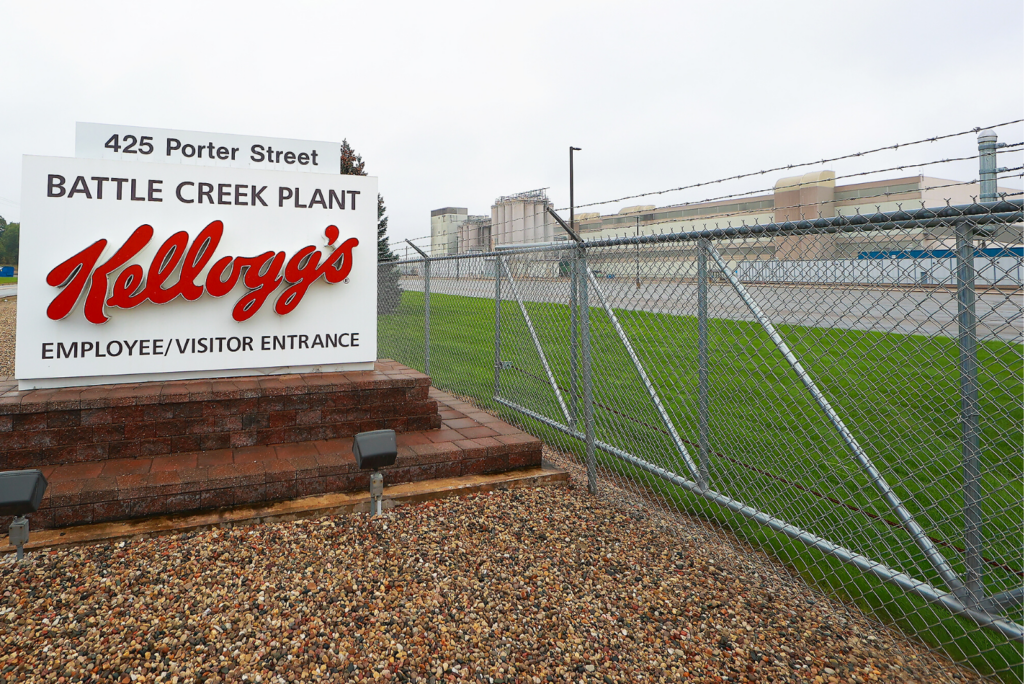BATTLE CREEK, MI — More than 1,400 workers at Kellogg, the leading cereal and snack food manufacturer, have been on strike since early October, pushing back against what they say are unfair wages and benefits. But today, that demonstration ended as employees ratified a new contract. The agreement affects the 1,400 union-represented employees, who work at four of the company’s US cereal plants in Battle Creek, MI; Omaha, NE; Lancaster, PA; and Memphis, TN.
The five-year contract with the Bakery, Confectionary, Tobacco Workers and Grain Millers (BCTGM) International Union “includes across-the-board wage increases and enhanced benefits for all, including an accelerated path to legacy wages and benefits for transitional employees,” according to the company.










